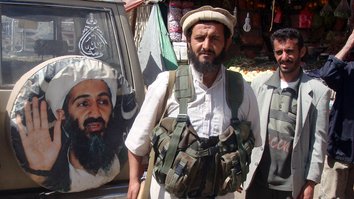KABUL -- Representatives of several countries at a United Nations (UN) Security Council special session last week voiced concerns about terrorist activities in Afghanistan.
The June 21 special session in New York took place as preparations are under way for a third UN-hosted conference on Afghanistan in Doha, Qatar, June 30–July 1.
The session mainly focused on security, human rights and the economy, while some regional delegates stressed the need for action against terrorism.
Terrorist groups such as the Khorasan branch of the "Islamic State of Iraq and Syria" (ISIS-K), al-Qaeda and Tehreek-e-Taliban Pakistan (TTP) remain active in Afghanistan, emphasized Pakistani representative Munir Akram.
The "highest priority" for the international community, Afghanistan's neighbors and Afghanistan itself "remains the elimination of terrorism within and from Afghanistan," he said, according to a UN statement.
Afghanistan must not be used to encourage extremist ideologies or spread instability in the region, said India's representative.
The security situation is fragile with terrorist groups remaining active, said France's representative.
ISIS attacks
ISIS-K carried out six attacks in Afghanistan between February 28 and May 15, the UN said in a June 13 report.
On March 21, an ISIS-K affiliate detonated an improvised explosive device (IED) at a Kabul Bank branch in Kandahar city, killing 25 people and injuring 50 others.
ISIS-K claimed responsibility for burning fuel tankers in Kabul on April 9.
On April 20, the group said it carried out an IED attack on a bus carrying mostly Shia civilians in Kabul, wounding four.
ISIS-K on April 29 targeted a Shia mosque in Guzara district, Herat province, killing at least six and injuring one.
"In its propaganda, [ISIS-K] continued to threaten the international community while also promoting attacks in the wider region," the report said.
Safe haven for terrorists
Concerns are mounting over the expansion of terrorist activities in Afghanistan, especially after purported current al-Qaeda leader Saif al-Adel called on his followers worldwide to travel to Afghanistan for terrorist training.
Al-Qaeda aims to turn Afghanistan into a hub for planning its terrorist attacks against other countries, Ahmad Zia Saraj, former chief of Afghanistan's National Directorate of Security, said last month in an interview with the Combating Terrorism Center at West Point.
"There is no doubt that Afghanistan has become a safe haven for terrorists," Abdul Wahid Khwajazada, an Afghan military analyst based in Türkiye, told Salaam Times.
"Until terrorist activities by groups like al-Qaeda and ISIS are eliminated, it is imperative for the international community to take action," he said.
"We must not allow terrorists to feel victorious and jeopardize global security."

![Security personnel guard a checkpoint on the eve of Eid ul Adha in Kandahar on June 16. [Sanaullah Seiam/AFP]](/cnmi_st/images/2024/06/25/46922-afp__20240616-585_329.jpg)






